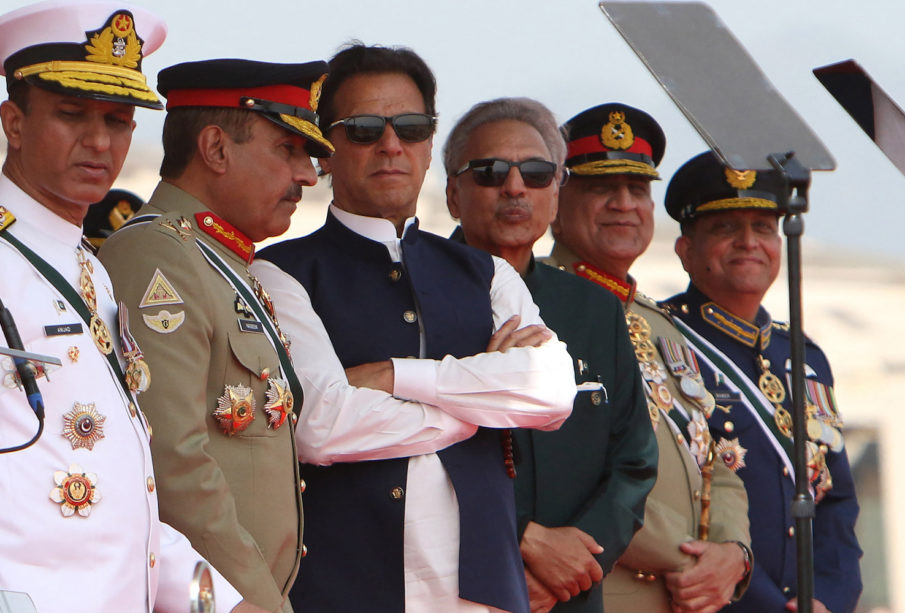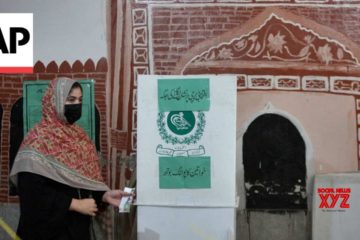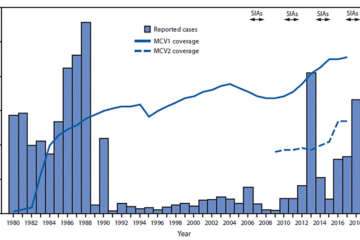Pakistan: Imran Khan Faces No-Confidence Vote – Foreign Policy

Imran Khan Faces His Biggest Political Test Yet
Ruling party defectors could doom the Pakistani prime minister in a no-confidence vote.
Welcome to Foreign Policy’s South Asia Brief.
The highlights this week: Pakistani Prime Minister Imran Khan faces a no-confidence vote, the Taliban renege on their pledge to let older girls return to school, and India-China competition brings financial relief to Sri Lanka.
If you would like to receive South Asia Brief in your inbox every Thursday, please sign up here.
Welcome to Foreign Policy’s South Asia Brief.
The highlights this week: Pakistani Prime Minister Imran Khan faces a no-confidence vote, the Taliban renege on their pledge to let older girls return to school, and India-China competition brings financial relief to Sri Lanka.
If you would like to receive South Asia Brief in your inbox every Thursday, please sign up here.
Imran Khan Faces No-Confidence Vote
In 1992, as Pakistan’s national cricket squad prepared for its World Cup championship match against England, team captain Imran Khan reportedly offered an inspiring message to his injury-hampered team before leading them to victory: “Fight like cornered tigers, because nothing is more dangerous than a cornered tiger.”
The story’s exact details were later contested, but the words have long been associated with Khan, now Pakistan’s prime minister. Thirty years later, he faces what may be his biggest test since joining politics in 1996. Galvanized by rising public discontent over skyrocketing inflation and economic malaise, Pakistan’s opposition is bringing a no-confidence vote to parliament to try to oust Khan. Although the special parliamentary session is scheduled to begin Friday, the vote will likely take place in the following days.
No Pakistani prime minister has ever been ousted by a no-confidence vote. However, opposition leaders are confident they have the simple majority needed—172 votes. Significantly, several dissident legislators from the ruling Pakistan Tehreek-e-Insaf (PTI) party have suggested they won’t vote against the motion. PTI coalition partners have also signaled they are leaning toward the opposition’s side. Khan will once again need to fight like a cornered tiger.
The prime minister also faces challenges from Pakistan’s most powerful political actor: the military. Civil-military relations have been relatively smooth during Khan’s nearly four years in office. However, Khan had a spat last year with Pakistan Army chief Qamar Javed Bajwa over the process to appoint the next intelligence chief, Nadeem Anjum. Khan had a warm relationship with Anjum’s predecessor, Faiz Hameed, whom Khan would like to see become army chief when Bajwa’s term expires in November.
This issue is likely one reason why the opposition acted when it did—to prevent Khan from sticking around and appointing his ally as the next army chief, strengthening his position ahead of national elections in 2023. Some political insiders see the military’s silence during the current crisis as a tacit endorsement of the no-confidence vote.
Yet Khan could still survive this test. He may even receive help from Pakistan’s Supreme Court. This week, a justice issued an opinion—not a final ruling—that Pakistani lawyers say would uphold a constitutional clause that could disqualify ruling party lawmakers who vote against their own prime minister in a no-confidence vote. The disqualification issue may remain unsettled up to the moment of the vote; PTI dissidents unwilling to risk an end to their political careers may reconsider their stance.
Khan will also engage in intense politicking to convince these dissident PTI members, other members of his coalition, and even the opposition to side with him. Furthermore, the ruling party plans to host a massive rally in Islamabad on March 27 to showcase Khan’s support, hoping this will prompt some lawmakers to honor the public will and vote in his favor.
If Khan wins the no-confidence vote, he will emerge more emboldened than ever. If he loses, the opposition will try to cobble together a new coalition. If that fails, the PTI is unlikely to put together a new government without Khan, who has no logical successor; early elections would be likely. The opposition has a strong incentive to support early polls because it seeks to avoid becoming the new target of public ire over Pakistan’s economic crisis.
The least likely outcome is a military takeover, despite Pakistan’s history of coups. The military would prefer that the civilians take the fall for Pakistan’s economic stress.
Regardless of the outcome of the no-confidence vote, violence is a very real possibility. Pakistan’s political environment is especially charged; Khan recently warned that “my gun is now aimed at Asif Zardari,” an opposition leader. There have been several violent clashes in recent weeks, and if Khan is ousted, passionate partisans could react with unrest. No one would benefit from such violence, not least Pakistanis who want politicians to focus on the economic crisis.
What We’re Following
Busy regional diplomacy. South Asia saw a flurry of diplomacy this week. U.S. Undersecretary of State Victoria Nuland is currently on a trip to Bangladesh, India, and Sri Lanka. Indian Prime Minister Narendra Modi met with the Japanese prime minister in person and with the Australian prime minister virtually—both members of the Quad grouping. Meanwhile, Chinese Foreign Minister Wang Yi completed a trip to Pakistan for an Organization of Islamic Cooperation summit this week and is expected to visit India on Friday—the most senior-level Chinese visit since the border clash in 2020. He will travel to Nepal this weekend.
A few factors explain this diplomatic activity. One is that the pandemic has eased and enabled more high-level interactions, and another is the war in Ukraine. The countries that Nuland is visiting all abstained from an earlier United Nations General Assembly resolution condemning Russia’s invasion. In an interview with an Indian TV channel, she said the issue was discussed at length during her meetings in New Delhi.
The China factor looms large, too. Western countries are aware of India’s concerns that the war in Ukraine could distract from efforts to counter China. The Quad partners likely want to reassure New Delhi that the commitment to the Indo-Pacific remains strong. Nuland’s visit reflects the Biden administration’s desire for more regional engagement beyond India and Pakistan. Yet Wang’s visit shows that Beijing is also keen to reassert its influence in South Asia, which extends deeper than Washington’s.
Girls arrive at their school in Panjshir, Afghanistan, on March 23.-/AFP via Getty Images
Taliban reneges on girls’ education promise. Afghanistan’s Taliban government failed to uphold a critical promise on education for girls this week. Since the Taliban took over last August, they had ordered girls above the sixth grade to stay home. They pledged to end that policy this week, but on Tuesday the leadership reneged. Taliban officials have said little about the decision, but Afghan reports said they had cited the issue of school uniforms.
The decision reflects the strength of the Taliban’s hard-line leadership, which likely prevailed over more moderate voices. The move also recalls all the broken promises by the Taliban government in the 1990s about girls’ education. It will strengthen the argument of those who say the Taliban haven’t changed much since their last time in power. Although the group has altered its views on some issues, there are few signs that its fundamental ideology has changed.
Western donor states approached the Taliban pledge on girls’ education as a key determinant of future engagement with the group. Unfortunately, this means the decision this week could complicate efforts to get more economic aid to Afghanistan.
Violence in West Bengal. On Tuesday, arsonists set fire to homes in Birbhum district in West Bengal, India, killing eight people. The state is controlled by the Trinamool Congress party (TMC), and Chief Minister Mamata Banerjee is a bitter rival of Indian Prime Minister Narendra Modi and the ruling Bharatiya Janata Party (BJP). Local BJP leaders insist that TMC members carried out the attacks in retaliation for a bomb attack that killed a TMC-linked leader the previous day.
The opposition leader in the West Bengal legislature, Suvendu Adhikari, claimed without elaborating that the state has seen 26 killings in the last week. State opposition leaders have demanded Banerjee’s resignation. TMC officials have been vague about the attacks, saying only that they are investigating and that they were likely driven by “personal enmity.” Police announced Wednesday that they had made at least 20 arrests.
The tragedy underscores the deep regional political rivalries confronting the BJP, even after its triumphant performance in state elections elsewhere this month. The incumbent TMC was reelected in a landslide in 2021, and Banerjee has been chief minister since 2011.
Quote of the Week
“Democracies need to stand together and evolve their position vis-à-vis Russia because of the choices Putin has made.”
—Victoria Nuland, the U.S. undersecretary of state for political affairs, speaking to India’s NDTV
Under the Radar
South Asia’s worst economic crisis rages on in Sri Lanka, but the country may find some relief via deepening India-China competition in the region. Last week, Sri Lankan Finance Minister Basil Rajapaksa traveled to India to finalize a $1 billion line of credit that will allow for food and medical assistance. Just a few days later, China’s ambassador to Sri Lanka, Qi Zhenhong, said Beijing is considering a request from Colombo for a $2.5 billion assistance package, including a $1.5 billion credit line.
China is already a major financial supporter of Sri Lanka, with about $3.4 billion in current loans, which do not include loans to state-owned businesses. Qi said Beijing has also provided $2.8 billion in financial assistance since the start of the pandemic. But India has made its own economic contributions, including investments in infrastructure, energy, and manufacturing. During a trip to New Delhi in January, Rajapaksa called for even more assistance.
Late last year, after Chinese fertilizer shipments to Sri Lanka were found to be contaminated, India’s air force swooped in and airlifted tens of thousands of kilograms of fertilizer to Sri Lanka. Colombo would prefer to avoid getting caught up in the India-China strategic tug of war, but it does open up possibilities for increased financial assistance when the country can use all the help it can get.
Regional Voices
In the Dhaka Tribune, anthropology student Anas Ibna Rahman identifies the damaging environmental impacts of urbanization in Bangladesh, from deforestation to water pollution. “Overexploitation for urbanization and development projects create shortages” of critical resources, he warns. “The aftermath of unplanned urbanization is not promising.”
An editorial in the Kathmandu Post warns of the risks to Nepal if its economic policy places too much emphasis on tourism and remittances. “We need robust policies to shield us from the downsides of an apocalyptic economic crisis [like the one] affecting Sri Lanka, which could quite honestly have plagued Nepal,” it argues.
In South Asian Voices, researcher Namra Naseer explains the dynamics driving Pakistan’s neutral position on the war in Ukraine. She argues that the “trajectory of Pakistan’s relations with the West, especially the United States, laid the groundwork for Pakistan’s muted response to the invasion of Ukraine.”
Michael Kugelman is the writer of Foreign Policy’s weekly South Asia Brief. He is the Asia Program deputy director and senior associate for South Asia at the Wilson Center in Washington. Twitter: @michaelkugelman
More from Foreign Policy
The Intellectual Catastrophe of Vladimir Putin
The meaning of Russia’s war in Ukraine is its own national weakness.
Putin’s Thousand-Year War
The reasons for his anti-Western enmity stretch back over Russia’s entire history—and they will be with us for a long time.
How Does the Ukraine War End?
The West needs to prepare for a lose-lose cease-fire.
Ukrainian Staff at U.S. Embassy, Left Behind, Say U.S. Is Backtracking on Promises of Support
“It looks as if some officials have already given up on Ukraine,” local staff told the State Department.
You can support Foreign Policy by becoming a subscriber.












